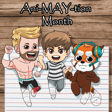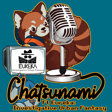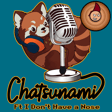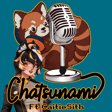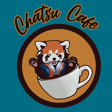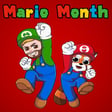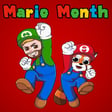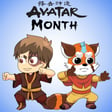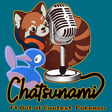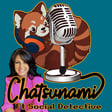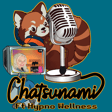
Exploring the World of Neurodiverse Stories with Beyond 6 Seconds!
In this episode, Satsunami is joined by host Carolyn of the Beyond 6 Seconds podcast that shares extraordinary stories from the neurodivergent community. From the struggles of podcasting to what it means to be a podcaster, you will not want to miss this one!
This podcast is a member of the PodPack Collective. The members are as follows:
Chatsunami
Casting Views
Nerdstalgic
2 Girls 1 Reusable Cup
Review it Yourself
Seismic Cinema
For further information, please follow the link: https://www.chatsunami.com/p/podpack-collective/
Check out all of our content here: https://linktr.ee/chatsunami
Website: chatsunami.com
Twitter/X: https://twitter.com/ChatsunamiPod
Instagram: https://www.instagram.com/chatsunami/
TikTok: tiktok.com/@chatsunami
Patrons:
Battle Toaster
Sonia
Greenshield95
Danny Brown
Aaron Huggett
Use my special link zen.ai/chatsunami and use chatsunami to save 30% off your first three months of Zencastr professional. #madeonzencastr
Stay safe, stay awesome and most importantly, stay hydrated!
